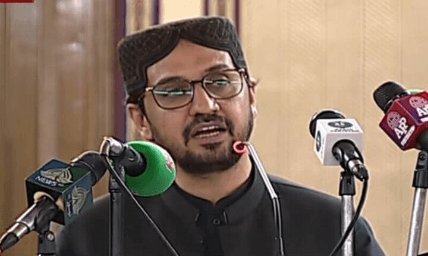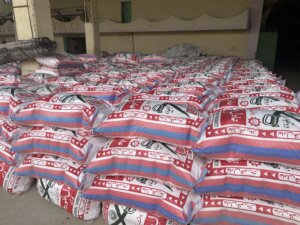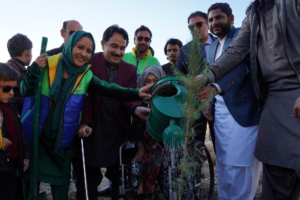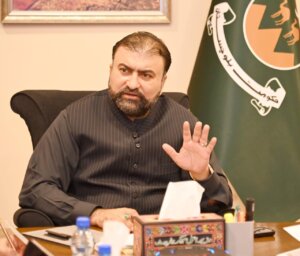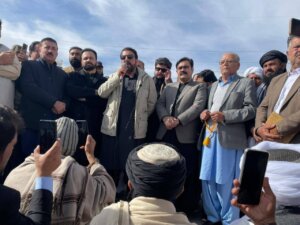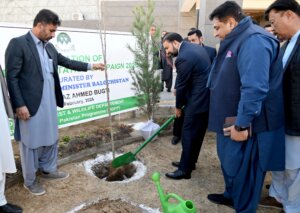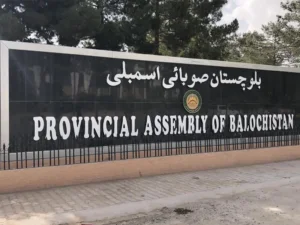Syed Ali Shah, Manan Mandokhail, News Desk:
Quetta – June 17, 2025: The Balochistan government has announced an expansive budget worth Rs1,000.208 billion for the fiscal year 2025, marking a significant investment in key public sectors including education, healthcare, infrastructure, and security. Finance Minister Mir Shoaib Nosherwani presented the budget, emphasizing a forward-looking development agenda centered on inclusive growth and improving the quality of life for the people of Balochistan.
Development Projects
Out of the total budget, Rs642 billion has been reserved for non-development expenditures, while Rs249 billion will fund development projects across various departments.
Education
Education remains a top priority, with secondary education receiving Rs101 billion, and Rs19 billion for development programs aimed at upgrading school facilities, enhancing teaching standards, and expanding access to quality education. The higher education sector is also set to benefit from an allocation of Rs8 billion, which will support university infrastructure, academic research, and scholarships.
Health Sector
In healthcare, the government has allocated a total of Rs87.4 billion, out of which Rs71 billion is set aside for ongoing operations and essential services, while Rs16.4 billion will be used for development schemes such as building new hospitals, upgrading existing medical facilities, and expanding healthcare outreach in rural areas.
Drinking Water at 1000 Sites
To address the pressing issue of clean drinking water, the government will invest Rs3 billion in the installation of 1,000 water filtration plants across all union councils of the province. This move is expected to significantly reduce waterborne diseases and improve public health, especially in underserved communities.
Law and Order Budget
Security and urban safety also feature prominently in the budget. A substantial Rs18.5 billion has been allocated to launch Safe City initiatives in Quetta and other major cities, with the goal of enhancing public surveillance, emergency response systems, and urban policing.
In a step toward environmental sustainability, Rs500 million has been allocated to the newly established Balochistan Climate Change Fund. The fund will support initiatives that tackle climate-related challenges, promote green development, and protect natural resources.
Agriculture Sector
Key economic sectors have also received strong backing. The agriculture and food departments have been granted over Rs28 billion. Of this, Rs10 billion will be used for development projects to modernize farming practices and improve food security, while Rs16.77 billion will cover operational expenses. The food department has additionally received Rs26.9 million for development and Rs1.19 billion for non-development functions.
Rural development and municipal services are set to be strengthened with a combined allocation of Rs54.9 billion for the Local Government and Rural Development Department, including Rs12.9 billion for development activities and Rs42 billion for administrative and operational purposes.
The Communication and Works Department, responsible for maintaining and expanding the province’s infrastructure, has been granted a significant Rs84.28 billion. This includes Rs66.8 billion for construction and development projects, and Rs17.48 billion for routine expenditures.
Public safety remains a cornerstone of the budget, with Rs86.7 billion directed toward maintaining law and order. This includes Rs83.7 billion for non-development operations such as salaries, logistics, and equipment for security forces, and Rs3 billion for developmental enhancements.
Peoples Train Service
Adding to the province’s transportation infrastructure, the finance minister announced the launch of the People’s Train Service in collaboration with Pakistan Railways. The service will initially run between Quetta, Sariab, and Kuchlak, offering safe, affordable, and convenient travel options to local commuters.
The Balochistan Budget 2025 reflects a strategic vision focused on socio-economic development, institutional capacity building, and delivering essential services to citizens. With robust funding across critical sectors, the government aims to pave the way for a more prosperous, stable, and inclusive future for the province.
